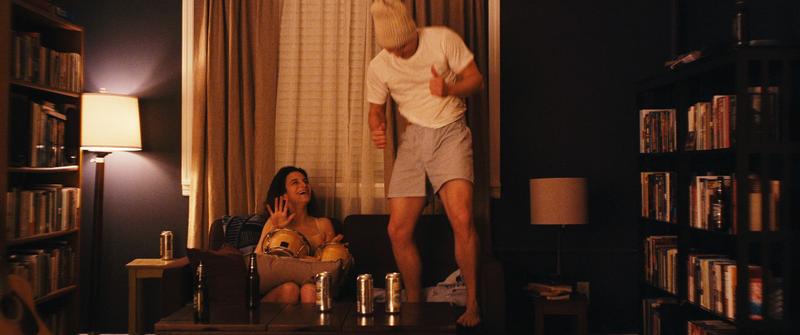
'Obvious Child' is an indie romantic comedy with a twist. In it, Brooklyn comedian Donna Stern — played by former "Saturday Night Live" cast member Jenny Slate — gets an abortion after a one-night stand.
And she doesn't agonize over it.
New York filmmaker Gillian Robespierre, who both wrote and directed the film, said that she "really wanted to show a woman going through a safe procedure that had very little regret and no stigma or shame or judgement."
That makes Obvious Child very unusual. Perhaps unique.
Sociologist Gretchen Sisson, a researcher at Advancing New Standards in Reproductive Health at the University of California, San Francisco, analyzed how abortion has been portrayed in movies and TV shows since 1916. She said that Obvious Child may be the first positive — as opposed to neutral or negative — representation of abortion in an American film in wide release.
That's likely due to the Hays Code, which was a moral code for motion pictures in effect between 1930 and 1968. A 1956 addition to the Hays code clarifying an earlier principle said, "The subject of abortion shall be discouraged, shall never be more than suggested, and, when referred to, shall be condemned. It must never be treated lightly or made the subject of comedy."
"So, we have this Hollywood legacy of avoiding abortion — and certainly of never finding anything funny about either the abortion itself or the circumstances of a woman's life around an abortion," said Sisson. "Which makes Obvious Child very exceptional."
Sisson said that almost 16 percent of the characters who get abortions in media wound up dying, which "creates the idea that abortion is not only not funny, can't be funny, shouldn't be funny, but that it's very dangerous."
That cultural silencing of abortion as a viable option for pregnant women is one of the reasons why filmmaker Robespierre wanted to tell Donna's story as her first feature film, she said. But she doesn't think of it as a political story. "Ultimately, we wanted to tell a human story," Robespierre said.
That's what Slate writer Amanda Hess saw when she viewed Obvious Child. "I was really surprised that it was so personal," she said. "It didn't seem weighed down by politics."
Instead, she said, the characters in the movie discuss abortion in a natural way. "I thought it was such a smart way to deal with the politics in the movie. Let's talk about this in the way that real people talk about it — and that includes some morbid jokes sometimes."
